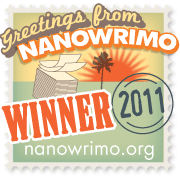I’ve been writing and rewriting and then scrapping and then writing some more.
That has been my writing life recently. Churning out nothing but tosh and then rehashing it. Then being disappointed by it and then starting all over again.
I find myself bereft of eloquence, of flair, of style – finesse.
I read my words and think they are meaningless and contrived.
However, I think I have discovered the cause of the problem: I am simply trying too hard.
As Batman would say to Robin “to the bat cave!”, I make a similar exclamation of “to the books!” as I went in search of a remedy.
There are no bats, boy wonders or tight fitting black outfits to be found in my little library though, alas.
I get inspiration by reading other people’s words and gain motivation once more to write my own. This time (after conquering some of Shakespeare’s history plays, including the much maligned Richard’s) I resorted to a short Jane Austin offering – Northanger Abbey. Miss Austin is resplendent in advice about the novel as a writing form throughout. I like her writing style. She has many cheeky asides with the reader whilst laying before them a most splendid garden of neat flowers and two dimensional people. She is most certainly not a Brontë, but I like her nonetheless.
My conclusion is most certainly that I am trying too hard. I am trying to be floral and elegant and instead, coming up with mismatched sentiments and long winded descriptive narrative. Who cares about the wood grain on the coffee table? Who cares about the texture of the rubber plants leaves? I can just give a quick, sweeping statement to the reader and they can fill in the gaps. There is no need to spoon feed them.
Part of the fun of reading is the use of your imagination. People say constantly that the ‘book is better than the film’, mostly because no film maker or studio budget is capable of matching the machinations of your imagination. No-one can see the characters – not even the writer – like you can.
Writing is essentially a set of directions and instructions. You are telling the reader what is being said, how it is said, where things are and how people look and feel. You are telling them. You are not there with them. You cannot physically be a readers imagination.
I think this realisation has certainly helped untie to multiple knots I find myself restrained by. The sudden and relieving rush of knowing that actually, I don’t need to tell the reader absolutely everything. I’m not giving a Police statement here – the finer nuances that do not really matter, are okay to be absent.
I’m trying to evoke poetic visions where they are not needed and are out of place a lot of the time. I am trying too much to involve and evolve themes that are unnecessary.
I just need to get a solid grip. A room is richly furnished. I do not have give an IKEA catalogue description of every blessed thing in there. The reader can furnish it themselves. Why should I patronise them? It is of course good to describe when it is needed and essential at times even… but I went a bit too far the other way.
Less is definitely more and I am glad that I have finally understood that concept. I hope my words here finally help some of you too who are wondering what the heck is going wrong.
LimebirdCat x



